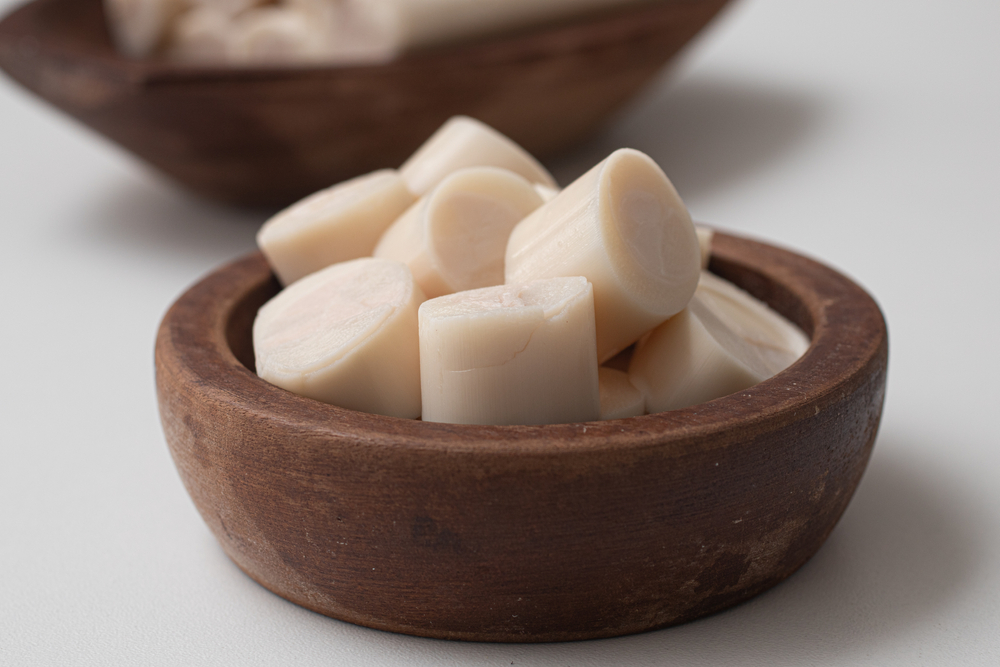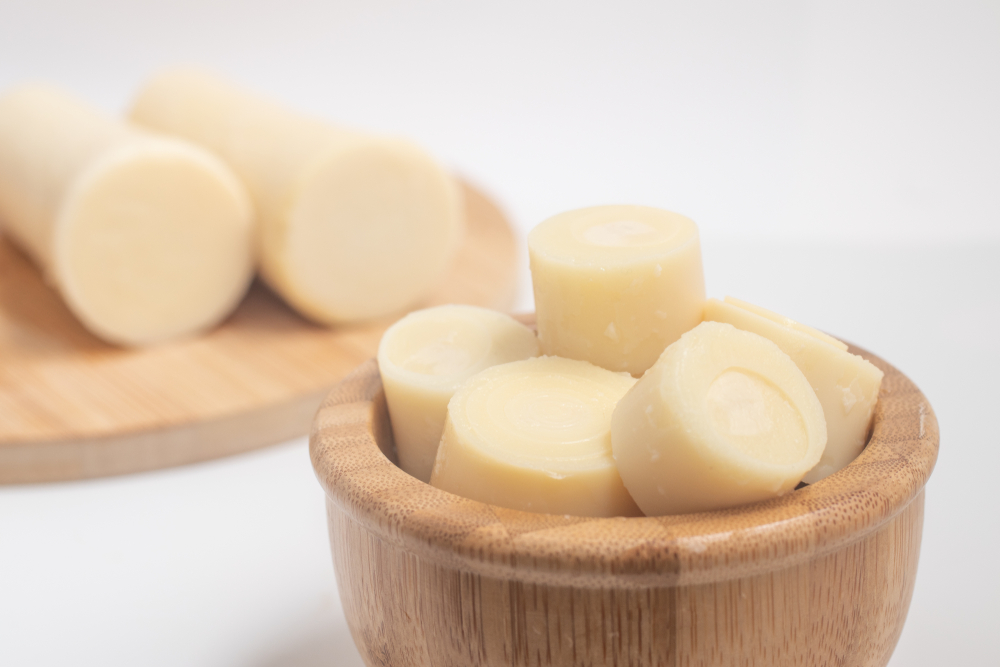Hearts of palm are literally exactly what they sound like—the very internal parts of certain species of palm tree. These tender veggies can serve in a variety of recipes and so many people can reap the long list of benefits this plant has to offer.
Many use hearts of palm as a meat replacement thanks to its incredible texture and subtle flavor. This versatile plant is also fine for your pup to munch on—in moderation, of course.
In this article, we aim to look at the benefits versus the risks of hearts of palm for dogs.


Hearts of Palm Is Non-Toxic to Dogs
Hearts of palm are considered non-toxic to dogs, so dogs are allowed to eat this well textured plant source in moderation. Hearts of palm are super versatile in the kitchen, and for your dog as well. They have a fleshy texture but hearty flavor, and since they are used as a meat substitute, it’s no wonder your dog is likely attracted to the recipe.
Hearts of palm come from different trees but most often the coconut (Cocos nucifera), peach palm (Bactris gasipaes), juçara (Euterpe edulis), açaí palm (Euterpe oleracea) and palmetto (Sabal spp.) are used.
Our dogs can have a variety of fruits and vegetables as part of a balanced diet. Having fresh items in the diet can really increase roughage and allow you to ensure you’re giving your dog the best nutritional benefits possible. However, foods like hearts of palm should still be given in moderation, as they can cause gastrointestinal upset in dogs if eaten in large amounts, and your dog gets all the nutrients they need from their normal dog food anyway.




Benefits of Hearts of Palm
As a whole, dogs can eat hearts of palm in moderation. Here are some of the benefits of hearts of palm for your dog.
High Fiber
Hearts of palm are relatively high in fiber. This can be beneficial to the gastrointestinal system. They contain both soluble and insoluble fiber for a range of benefits to digestion. Adding a little roughage into your dog’s diet can help them feel fuller for longer and ease passage of feces. There is such a thing as too much of a good thing though and too much fiber can cause gastrointestinal upset.
Low in Fat
These veggies are low in fat, meaning they are a healthy choice for food to feed your dog, especially if they are carrying extra pounds.
Rich in Vitamins & Minerals
Hearts of palm are absolutely packed with valuable vitamins and minerals such as calcium, iron, magnesium, potassium and folate. Granted, your dog gets an evenly balanced bounty of vitamins and minerals in their commercial diet, but fresh nutrients are also beneficial.




Risks of Hearts of Palm
Yes, hearts of palm are generally safe for dogs—but beware! While this is usually totally fine for most healthy adults, that doesn’t mean certain dogs won’t have a negative effect from it.
Gastrointestinal Upset
While hearts of palm are non-toxic, it can still be problematic to your dog’s system when you introduce a new food. Your dog can be very sensitive to certain food items—especially very off-the-wall plant items that aren’t a part of their natural diet.
If you have a rather sensitive pup, they might experience some gastrointestinal upset. The signs could include excess salivation, vomiting, whining, diarrhea, or general discomfort. Usually they will pass on their own, but you should always consult your vet if you’re concerned after your dog ate hearts of palm.
Not all parts of palms or all palm plants are safe for your dog. As an example Sago palm, Cycas revoluta, is toxic to dogs. If your dog has been eating a palm plant you have at home it is best to check the toxicity of the individual species, but most canned palm hearts will be safe.




How to Serve Hearts of Palm to Your Dog
Ultimately, there is no real reason to routinely add hearts of palm into your dog’s diet. But if you want to give them a little taste every once in a while, you should only serve them plain and unseasoned. Certain seasonings and flavors can be toxic to dogs, particularly garlic and onions, so even if the hearts of palm won’t make your dog sick, other ingredients could. And while hearts of palm do have their perks, there are plenty of other supplemental foods that would be more canine-specific and nutritionally beneficial.
Another consideration is that the harvesting of hearts of palm has become controversial due to the environmental impacts.


Conclusion
Now you know more about hearts of palm and their effect on our pups. If your pup caught a few pieces falling from the countertop—that’s okay! It will be perfectly fine, as it is non-toxic to your dog. However, they shouldn’t be fed hearts of palm regularly, as they are not part of a dog’s natural diet and can cause an upset stomach if eaten regularly or in excess.
Featured Image Credit: HC FOTOSTUDIO, Shutterstock
